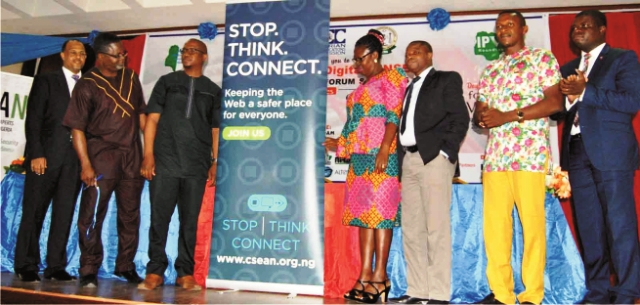Business
LCCI Tasks FG On EU Beans Ban

The Export Group of the
Lagos Chamber of Commerce and Industry (LCCI) has urged the Federal Government to put an end to the European Union’s (EU) continuous ban on Nigerian beans export to its countries.
The LCCI Export Group Chairman, Dr Obiora Madu, gave this recommendation in an interview with our correspondent in Lagos on Tuesday.
The Tide reports that the EU had on two consecutive times banned Nigerian beans and some other agricultural produce from being exported to its member countries.
EU leaders had asked Nigeria to put a management system in place to reduce pesticide-contaminated food produce that it exports to the community or face continued rejection of the produce.
According to Madu, the bulk of what needs to be done to ensure Nigerian Beans is accepted in EU countries lies with the relevant government agencies involved.
He said the government agencies could speed up actions to ensure resumption of beans export to European Union (EU) countries.
“The ban of Nigerian beans export to European Union countries is a systematic problem which is out of the hands of LCCI Export Group members.
“The correction that is needed is actually at the farms, mostly, because it is about chemicals that are used to preserve the beans.
“Whereas the chemicals can drive the insects away, the residual is, however, above the specified level,’’ the LCCI official said.
According to him, the export group members are not involved at the point where the beans are cultivated and where they are warehoused.
He said the problem was noticed when members bought the beans for export.
Madu added that the problem arose from the residual chemical in the beans at the point of exporting to EU countries.
He noted that this meant that there was a need to trace at what point the chemical came into the seeds.
Madu said that there was also the need for relevant government agencies to correct this anomaly to a certain level, so that beans exporters could resume exporting to EU countries.
Business
Agency Gives Insight Into Its Inspection, Monitoring Operations

Business
BVN Enrolments Rise 6% To 67.8m In 2025 — NIBSS

The Nigeria Inter-Bank Settlement System (NIBSS) has said that Bank Verification Number (BVN) enrolments rose by 6.8 per cent year-on-year to 67.8 million as at December 2025, up from 63.5 million recorded in the corresponding period of 2024.
In a statement published on its website, NIBSS attributed the growth to stronger policy enforcement by the Central Bank of Nigeria (CBN) and the expansion of diaspora enrolment initiatives.
NIBSS noted that the expansion reinforces the BVN system’s central role in Nigeria’s financial inclusion drive and digital identity framework.
Another major driver, the statement said, was the rollout of the Non-Resident Bank Verification Number (NRBVN) initiative, which allows Nigerians in the diaspora to obtain a BVN remotely without physical presence in the country.
A five-year analysis by NIBSS showed consistent growth in BVN enrolments, rising from 51.9 million in 2021 to 56.0 million in 2022, 60.1 million in 2023, 63.5 million in 2024 and 67.8 million by December 2025. The steady increase reflects stronger compliance with biometric identity requirements and improved coverage of the national banking identity system.
However, NIBSS noted that BVN enrolments still lag the total number of active bank accounts, which exceeded 320 million as of March 2025.
The gap, it explained, is largely due to multiple bank accounts linked to single BVNs, as well as customers yet to complete enrolment, despite the progress recorded.
Business
AFAN Unveils Plans To Boost Food Production In 2026
-

 Politics3 days ago
Politics3 days agoEFCC Alleges Blackmail Plot By Opposition Politicians
-
Business3 days ago
AFAN Unveils Plans To Boost Food Production In 2026
-

 Sports3 days ago
Sports3 days agoJ And T Dynasty Set To Move Players To Europe
-
Business3 days ago
Industrialism, Agriculture To End Food Imports, ex-AfDB Adviser Tells FG
-
Politics3 days ago
Datti Baba-Ahmed Reaffirms Loyalty To LP, Forecloses Joining ADC
-
Politics3 days ago
Bayelsa APC Endorses Tinubu For Second Term
-
Business3 days ago
Cashew Industry Can Generate $10bn Annually- Association
-

 Entertainment3 days ago
Entertainment3 days agoAdekunle Gold, Simi Welcome Twin Babies

